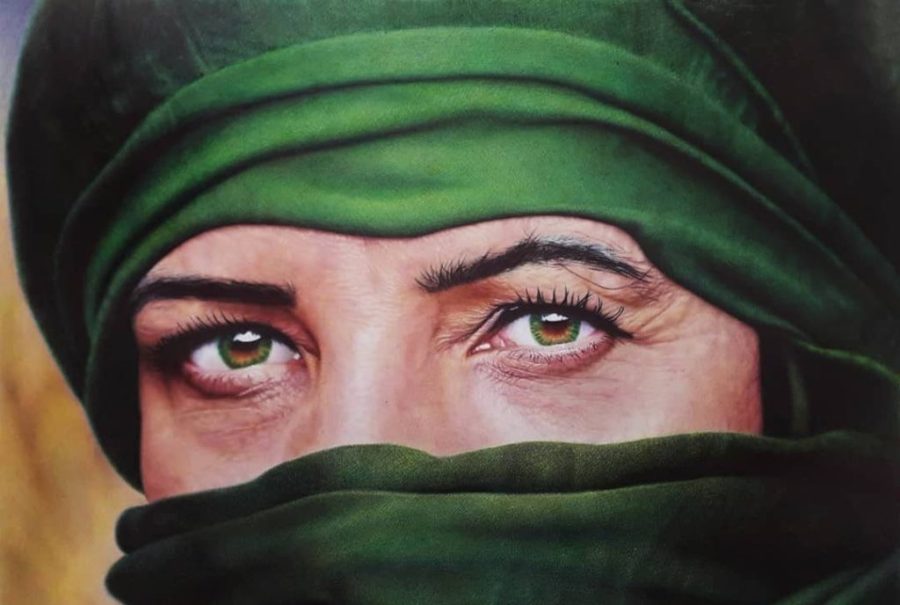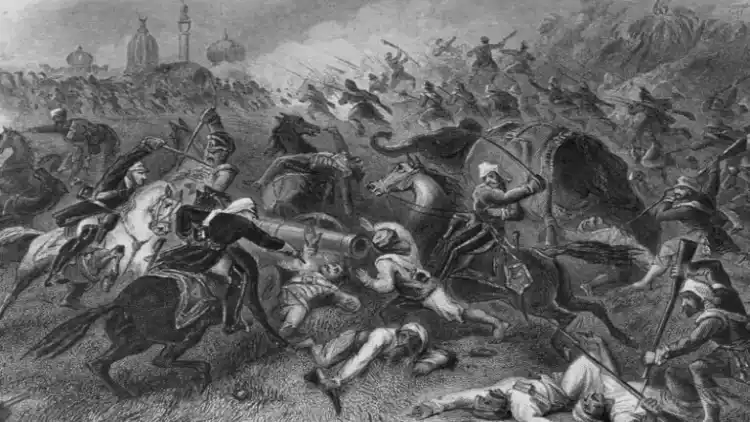
Unknown heroine of India in a green burqa
Many women also took part in the Indian War of Independence in 1857. One of them was an elderly Muslim woman in a green veil, whose name remains unknown. She not only inspired the warriors to feats, but she herself took part in the battles, writes the historian and writer Sakib Salim.
All sections of the population, regardless of religion, region, language, caste or gender, fought in the Indian War of Independence against British rule. However, very little is said about the role of women in this struggle. Usually, in this context, only such representatives of the upper strata of society as Lakshmi Bai, the princess of the Jhansi principality, or Begum Hazrat Mahal, the wife of the Nawab Auda, are mentioned . In fact, among the participants in the war were women from a wide variety of social groups. For example, in Western Uttar Pradesh, peasant women formed entire armed groups. Many of these women, such as Asguri Begum, Asha Devi, Bibi, Bhagwati and others, were later executed by the British.
One of the most prominent women leaders in the war against the British remains unknown. It was an elderly Muslim woman who wore a green veil. She encouraged men to fight, and also took part in battles on horseback with a gun and a sword. No one knew her name, or maybe those who did did not survive the massacre by the British .
Khwaja Hasan Nizami recorded the testimony of several survivors who saw this woman on the battlefield. She came to the markets of Delhi and announced: “Come with me, God is calling you to Paradise.” This woman urged people to join the attack of British forces at the Kashmir Gate or the ridge. There were many witnesses of how she fought and killed enemy soldiers. During the battle on the ridge, this unknown heroine fell from her horse. The British captured her and sent her to the Ambala camp.

Source: awazthevoice.in
Lieutenant WCP Hodson wrote to Douglas Forsyth, Deputy Commissioner of Ambala on July 29, 1857: “My dear Forsyth, I am sending you an old Muslim woman. She’s a strange woman . Dressed in green robes, she carried weapons with her and inspired people to rebel against us, urging them to attack our forces. The sepoys who met her face to face speak of her courage and courage. She was as strong as five men. We found a pistol on her. Our soldiers testified that she killed several people by skillfully shooting and wielding a sword. “
Hodson further noted that if this woman were to remain at large, she would become Joan of Arc for the Indian people, and therefore she must be “duly punished.” In his opinion, this “witch” is very dangerous for British interests.
Unfortunately, no records have survived to trace the fate of this woman in Ambala. Historians have tried to figure out her name, but have not been able to find any conclusive evidence. As a true daughter of her homeland, she sacrificed her life for the nation without receiving any recognition. It was true selfless service.
Islamosphere

